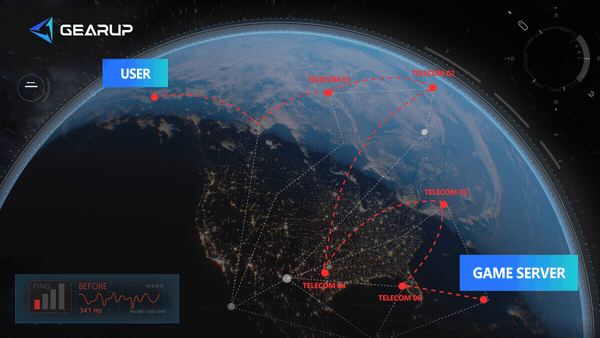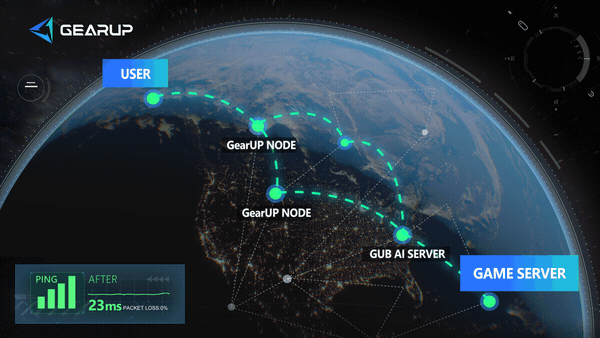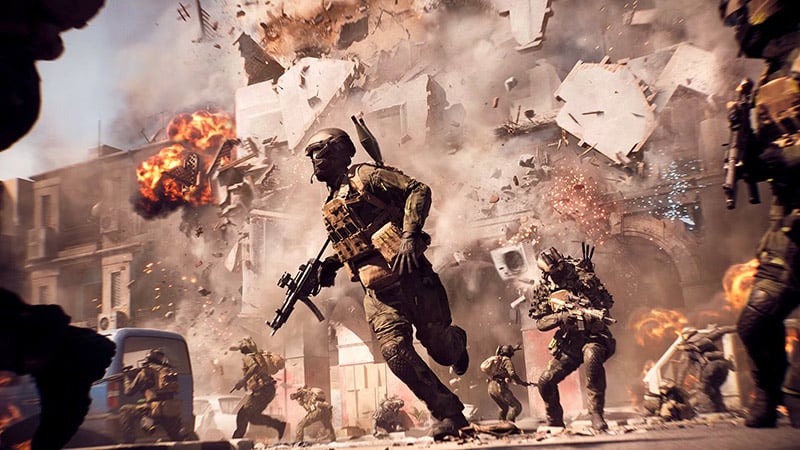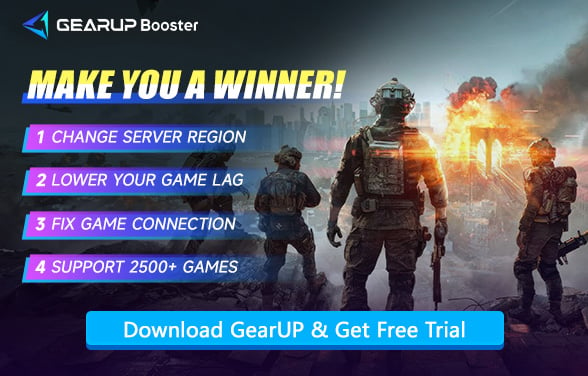How to Fix Battlefield 6 Game Lag
Battlefield 6 is poised to become one of the most intense and visually stunning multiplayer shooters in history, featuring vast maps, high player counts, and chaotic firefights that demand quick reflexes and smooth performance. However, due to its shorter TTK (Time to Kill) design, the impact of latency on gameplay becomes especially critical—lag and stuttering often plague players, particularly in high-population scenarios. So, let's explore the causes of Battlefield lag, its symptoms, and methods to achieve smoother gameplay.
Why Battlefield 6 Lags?
Generally speaking, lag can be divided into two main categories: network lag and hardware lag, and the causes of these two types of lag are different. Let's take a closer look.
1. Network Issues
- High Ping – Distance to servers or unstable connections cause delays.
- Packet Loss – Missing data leads to rubberbanding or unregistered shots.
- Server Overload – Crowded matches strain server performance.
2. Hardware Limits
- Weak CPU/GPU – Struggles with large maps and effects, lowering FPS.
- Low RAM/HDD – Slow loading causes stutters and texture pop-in.
- Overheating – Thermal throttling drops performance mid-game.
What Does Battlefield 6 Lag Look Like?
- Rubberbanding: Your character suddenly snaps backward like pulled by a rubber band. This happens when the server corrects your position due to packet loss.
- Delayed Shots: Bullets hit enemies noticeably late, making aiming feel unresponsive. The kill confirmation often appears seconds after you stop shooting.
- Stuttering Movement: The game freezes in micro-pauses during chaotic fights. Other players appear to teleport short distances instead of moving smoothly.
- Frozen Screens: The game completely locks up for 2-3 seconds, usually during explosions. Controls become unresponsive until the freeze ends.
- Audio Glitches: Gunfire sounds play late or get stuck in loops. Team voice chat cuts out precisely when you need coordination.


Basic Fixes to Reduce Game Lag
You can first ensure your local network connection and software are functioning properly through the following methods, which can reduce the probability of lag occurring:
- Use a Wired Connection: Ethernet is far more stable than Wi-Fi, which can suffer from interference and signal drops.
- Close Background Apps: Streaming services, downloads, or cloud syncs can eat up bandwidth and worsen lag.
- Update Network Drivers: Keeping your drivers updated ensures better compatibility with modern games and servers.
- Adjust In-Game Settings: Lowering settings like texture quality and shadows can reduce GPU strain, minimizing performance-related stutter.
- Play During Off-Peak Hours: If your ISP throttles or struggles with congestion, playing outside of peak evening hours may help.
Two Major Ways to Fix Battlefield 6 Lag
1. Use Game Booster(Game VPN)
In most cases, your in-game lag is caused by network connectivity issues, particularly when connecting to distant servers where network jitter is more likely to occur. In such scenarios, we need tools to resolve it. GearUP offers a simple and fast solution—its intelligent multi-path technology automatically detects problematic network nodes, calculates the optimal route, and switches in real-time. This ensures stable connections during matches with improved ping, requiring no manual network configuration. It also doesn't affect your game or other software, making it highly popular among the Battlefield community.
How GearUP works:
Step One: Click this button to download GearUP.
Step Two: Search for "Battlefield 6".
Step Three: Select your preferred server—GearUP can connect you to any Battlefield 6 server worldwide.
Step Four: Start the boost! You'll see real-time ping and packet loss data, then simply launch the game and enjoy smooth gameplay.
Besides, GearUP can also detect whether Battlefield 6 Secure Boot is enabled, helping you resolve issues preventing the game from launching.
2. Update Your Hardware
If you still experience stuttering after trying the above methods, you may need to consider whether your hardware is outdated or underpowered. We recommend upgrading in the following priority order:
- GPU: A minimum of RTX 2060 is required, but for smooth gameplay with ray tracing and DLSS 3.0/4.0, RTX 3060 Ti or RX 6700 XT is strongly recommended.
- Higher-end GPUs like the RTX 40 series or RX 7000 series will better handle 4K textures and dynamic destruction effects.
- CPU: The official recommendation is Intel Core i7-10700 or AMD Ryzen 7 3700X, but for superior single-core performance (critical for FPS games), opt for AMD Ryzen 5 9600X (Zen5 architecture) or Ryzen 7 9800X3D.
- Avoid older Intel generations (e.g., 12th/13th/14th) due to inferior gaming performance.
- RAM: 16GB DDR4/DDR5 is the baseline, but 32GB is advisable for multitasking and future-proofing, especially with large-scale battles and physics calculations.
- Storage: An SSD (NVMe preferred) is mandatory to reduce loading times and prevent stuttering, as HDDs may struggle with map transitions and high-resolution assets.
- Power Supply: Ensure at least 550W for mid-range builds, while high-end setups (e.g., RTX 4080 + Ryzen 9) may require 750W+ to handle peak loads.

Battlefield 6 Lag Troubleshooting FAQs
1. How to Tell Network Lag Apart from Hardware Lag?
Network Lag typically shows as rubberbanding, delayed hit registration, or sudden teleporting. These issues persist even when your FPS counter shows smooth performance. Check your in-game ping (press TAB) - consistent readings above 100ms indicate network problems.
Hardware Lag appears as stuttering, low FPS (below 60), or freezing during intense action. Open Task Manager - if your GPU or CPU usage stays at 100%, your hardware is struggling to keep up with the game's demands.
2. Does Connecting to Distant Servers Increase Latency?
Yes. Physical distance adds 20–150ms latency per 1,000 km due to signal travel time. For example:
- Connecting from Europe to Asia may add 80–150ms even with good internet.
- Use server filters to pick nearby regions or tools like GearUP Booster to optimize routes.
3. Why Am I Lagging with Low Ping and High-End Hardware?
Server congestion or temporary outages are the most likely culprits - when too many players flood a server (especially during peak hours or major updates), even robust hardware can't compensate for the server's overloaded tick rate and processing delays, causing hitches despite your strong connection and specs. Try switching to less populated servers or waiting for traffic to normalize.
Final Thoughts
Battlefield 6 does create a massive combat scenario for all the gamers, but better visualization and operation requires higher hardware as well. If you've optimized your PC but still face lag, network routing inefficiencies are likely to blame. GearUP directly solves these issues, ensuring that your connection to EA's servers is as fast and stable as possible.
About The Author
The End

